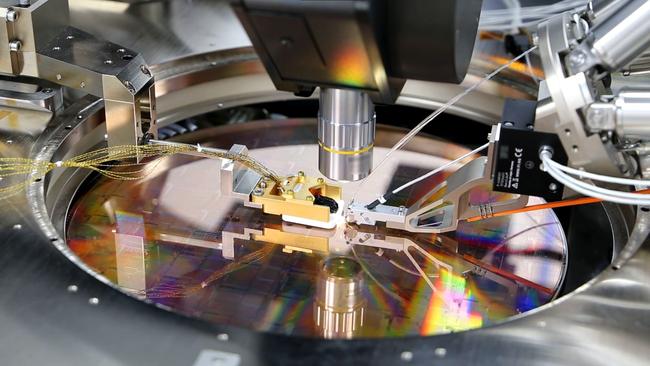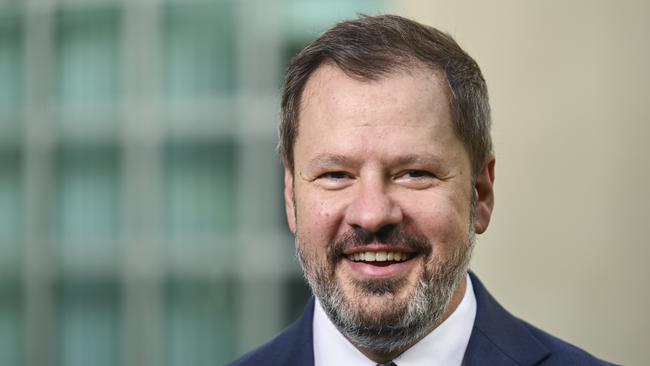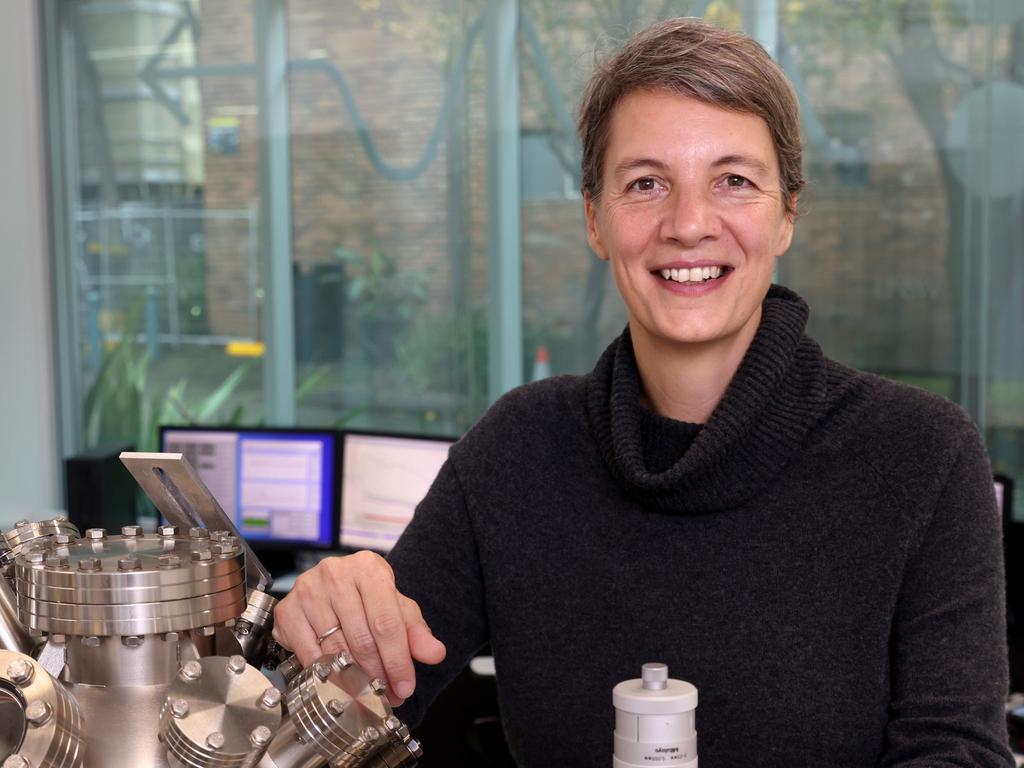Taxpayers in quantum leap of faith on US computer firm PsiQuantum
A massive $1bn taxpayer investment will be funnelled into a world-first quantum computer that will be designed and owned by a US company, despite the project being used to promote the Made in Australia agenda.

A massive $1bn taxpayer investment will be funnelled into a world-first quantum computer that will be designed and owned by an American company, despite the project being used to promote Anthony Albanese’s Made in Australia agenda aimed at boosting the nation’s sovereign control of future industries.
The Prime Minister and Queensland Premier Steven Miles will each announce about $470m in equity and loans to help US outfit PsiQuantum, headquartered in Palo Alto, build the yet to be developed fault-tolerant, quantum computer in Brisbane.
Industry Minister Ed Husic acknowledged PsiQuantum would own the computer once it was successfully built, but that Australia would get access to its computing power “for what we need or what industry needs”.
“This is a US company, that was set up by Australians,” Mr Husic said. “Australians left Australian shores because they didn’t think anyone would get what they were doing and back them. What this is about is bringing Australians home.”
The government will say on Tuesday that the joint investment will secure PsiQuantum’s Asia-Pacific headquarters in Brisbane and enshrine it as a cornerstone customer of Australia’s digital, quantum, and AI supply chains.
Mr Albanese said the government needed to make “bold investments today if we want to see a Future Made in Australia” and that he was “serious about building a strong quantum ecosystem.”
As part of the investment, PsiQuantum will create up to 400 highly skilled ongoing jobs, establish fresh partnerships within the local quantum industry, create a new dedicated climate research centre and invest in university and research collaborations including PhD positions and internships.
The Australian understands from sources that concerns about the funding package had sparked divisions in the senior ranks of Mr Husic’s department, with questions raised over the process and selection criteria.
Opposition science spokesman Paul Fletcher previously expressed concerns about PsiQuantum given industry sources had claimed that locally based Australian quantum firms were being effectively frozen out of the process due to eligibility criteria.
In December, Mr Fletcher argued the government would have “significant questions to answer” if it were to move ahead with an investment in the US firm given what he said were highly unusual and secretive procurement processes aimed at underwriting the acquisition of a full-stack, error-corrected quantum computer.

Mr Husic rejected the criticism on Monday and told The Australian the decision to select PsiQuantum for nearly $1bn in government investment had “been through cabinet”.
“We’ve engaged legal and commercial experts and technical experts,” he said. “There were expressions of interest that were carried out to test who is in the front to be able to develop a fault-tolerant quantum computer in the quickest time frame.”
“They’re seen as a frontrunner in this space ... It’s not just us saying that. If you look at their investment, some of the biggest names invest in them because they have been able to demonstrate their ability to meet their milestones.”
PsiQuantum co-founder and chief executive Jeremy O’Brien said the company was founded on the conviction that quantum computing was “the most profoundly world-changing technology that humans have discovered”.
“A utility-scale quantum computer will be an invaluable tool for Australia’s critical industries to leverage,” Mr O’Brien said.
“From revolutionising the processes and tools the pharmaceutical industry uses to develop new drugs to designing vastly more efficient batteries for electric vehicles to enhance the economics and efficiencies of the EV industry.”
Mr Miles said the quantum investment would bring “billions in economic opportunity to Queensland, which will deliver thousands of high-paying tech jobs and the chance for Queenslanders to work in careers that will change the world”.
“This investment partnership is as significant for Queensland and the nation as the first silicon microprocessors were to California that established Silicon Valley,” the Premier said.
The announcement follows a suite of major investment decisions from the Albanese government, including a contentious $1bn investment in the Solar Sunshot program in the Hunter region to help the nation make more solar panels.
Mr Albanese has also unveiled $840m to deliver the nation’s first combined rare-earths mine and refinery operated by mineral exploration company Arafura.
Pressed by The Australian on when the new advanced computer could be delivered, Mr Husic said it was “generally accepted that 2026-27 will be the finishing line” but acknowledged there was an element of uncertainty.
The government has cited figures from Boston Consulting Group to argue that investment in the world’s first commercial-scale fault-tolerant quantum computer could lead to up to an additional $48bn in GDP and 240,000 new jobs in Australia by 2040.
Mr Husic visited PsiQuantum’s headquarters in Silicon Valley on a taxpayer-funded trip to the US early last year, posting on his LinkedIn social media page that he saw “the steps they’re taking to building one of the world’s first full-scale quantum computers”.
PsiQuantum marked Mr Husic’s visit, declaring “it was an honour to host Ed Husic ... and his team at our HQ and lab”.
“We are impressed by the work Australia is doing to drive cutting-edge innovation, technology and job creation around their quantum ecosystem,” the company said.
PsiQuantum, which has raised more than $1bn from global investors including Blackbird, Blackrock, GlobalFoundries, Microsoft’s M12 and Temasek, was rolled out by Mr Husic’s office last May year to spruik the government’s National Quantum Strategy.
“Australia is fast becoming one of the most exciting, attractive nations for the development of quantum computing technologies,” the company said.
“With much of PsiQuantum’s foundational research originating in Australia, we fully support this National Quantum Strategy which will see Australia capture more of the commercial benefits and leverage this critical technology to deliver a prosperous, fair and inclusive Australia.”
Mr Husic disputed suggestions the investment in an American company was contrary to the government’s focus on promoting sovereign capabilities as part of its Made in Australia agenda.
He said it would help to “supercharge” other Australian industries.
“The stuff that this will unleash in terms of processing power … that we’ve got agreement to access … supercharges other industries – and by virtue of that, the economy,” Mr Husic said.
“This is a type of tech edge that we need to drive future growth in productivity.
“If we don’t do it, someone else will.”
Mr O’Brien said the promise of quantum computing was “a true step-change in the ways we understand and leverage chemistry, mathematics and physics in designing the world around us”.





To join the conversation, please log in. Don't have an account? Register
Join the conversation, you are commenting as Logout